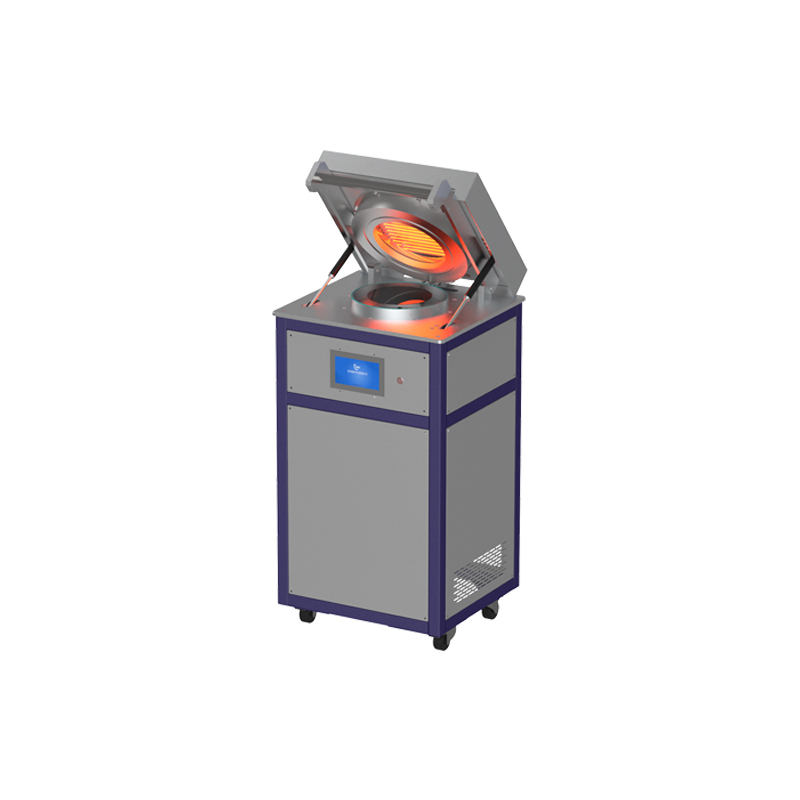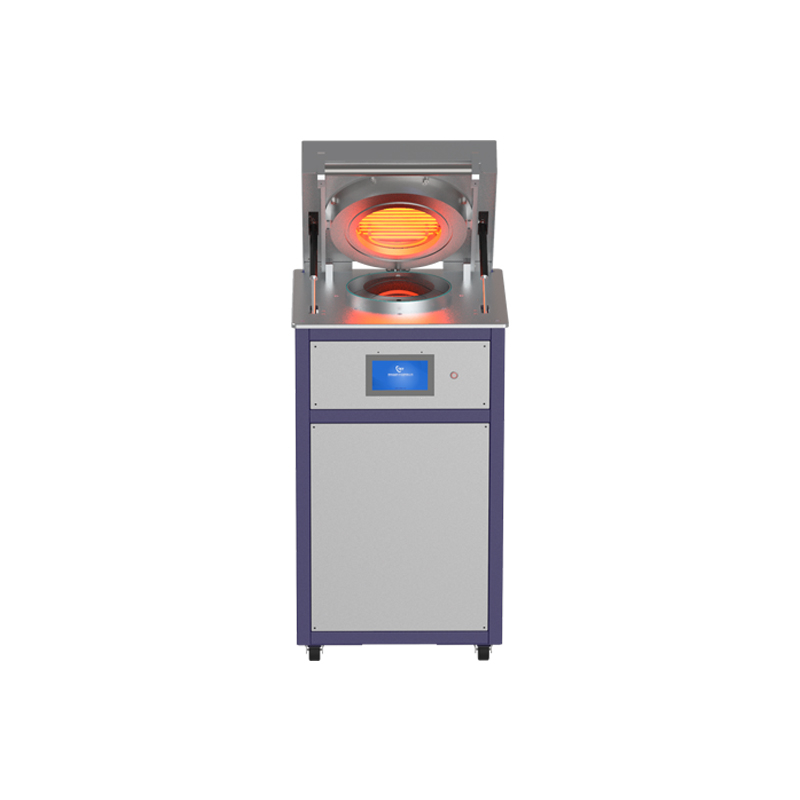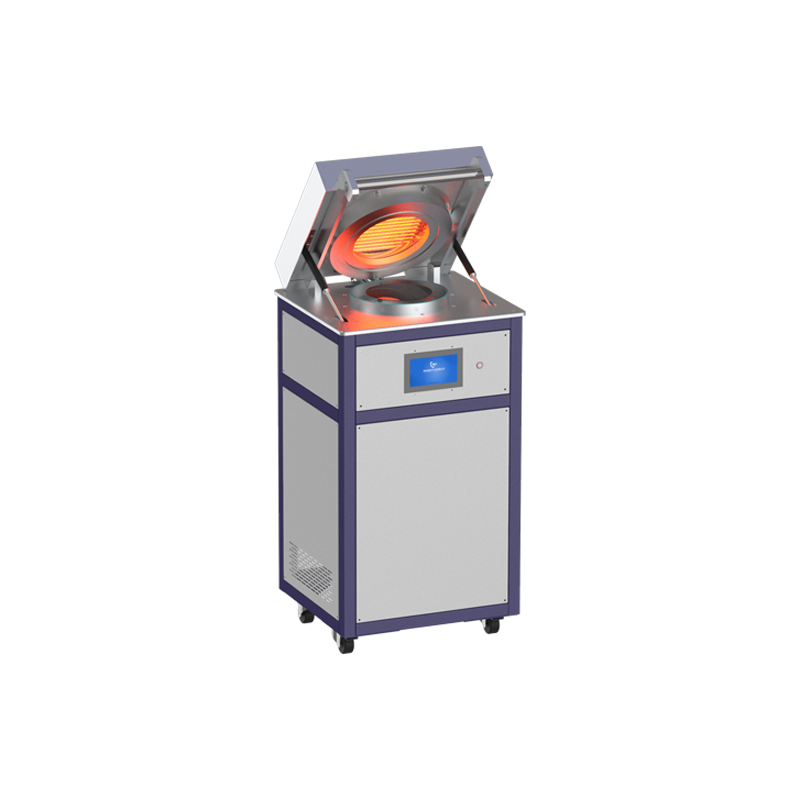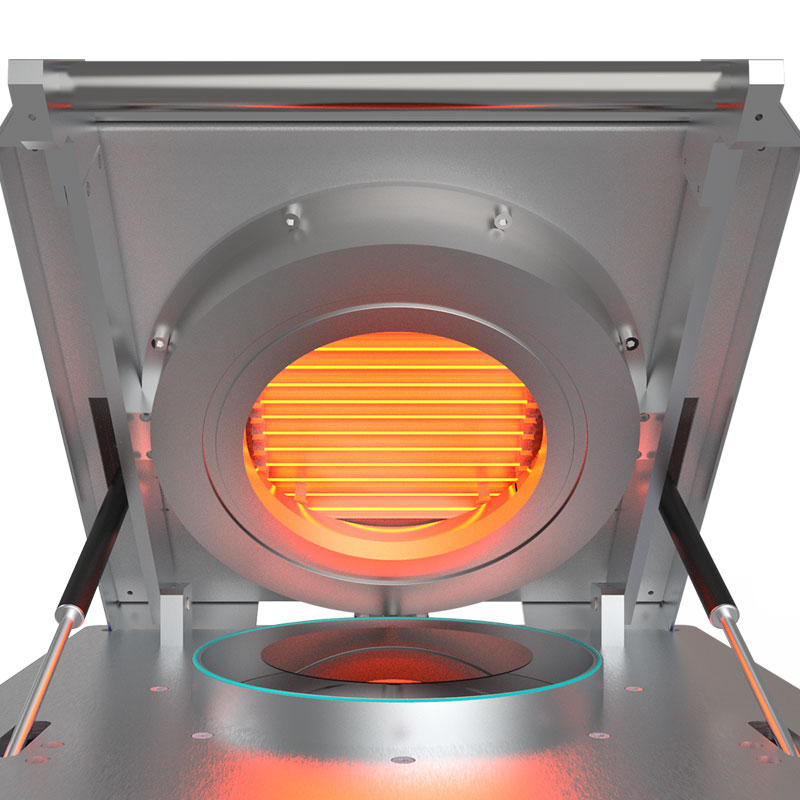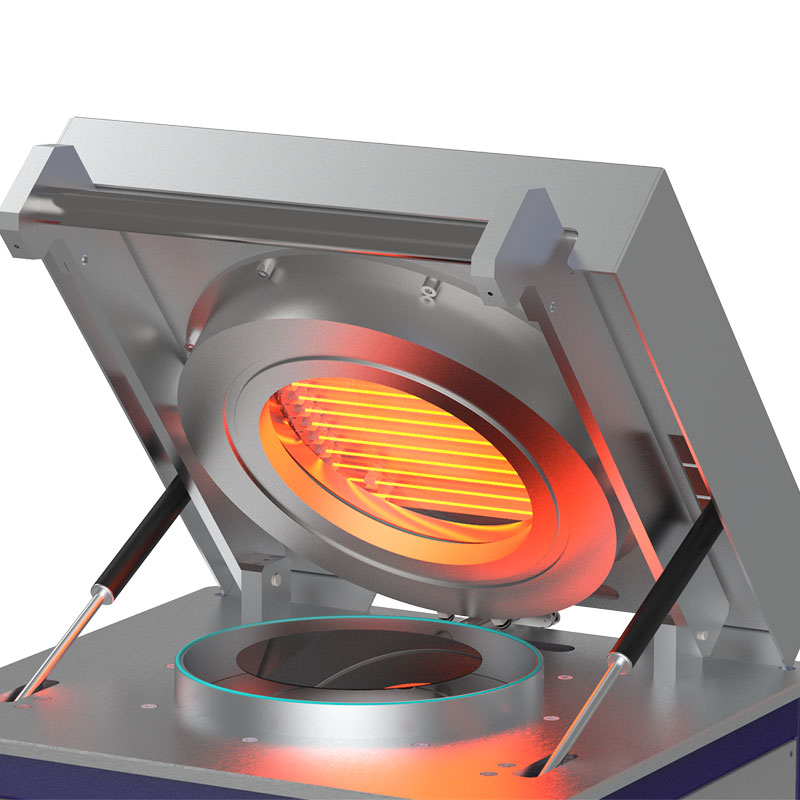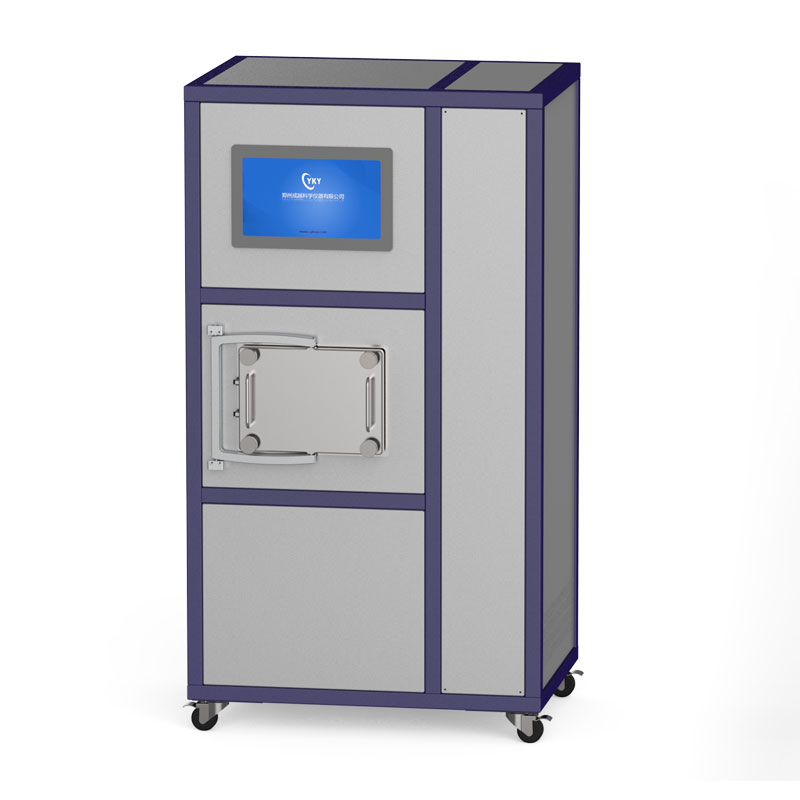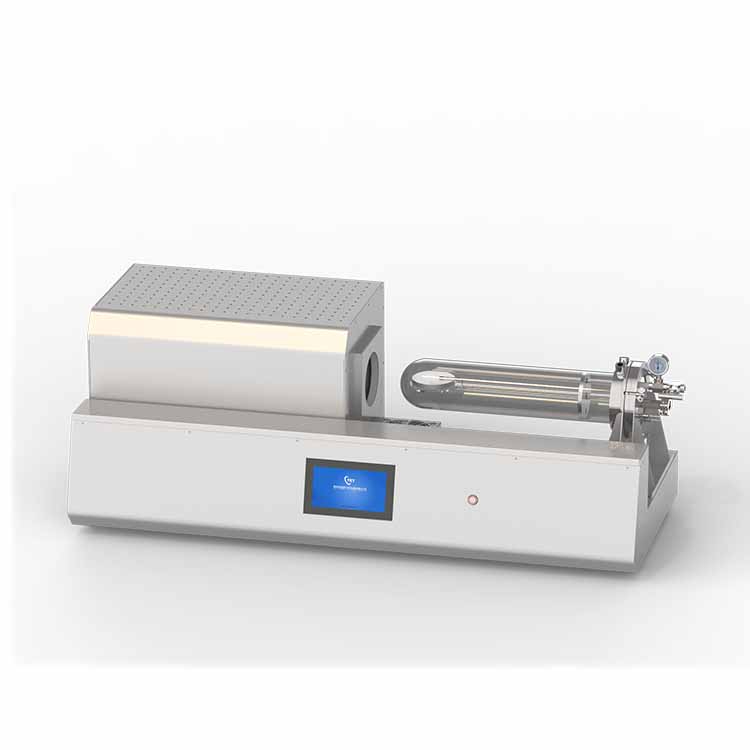The 1200 ℃ RTP cabinet annealing furnace is a 6-inch wafer rapid annealing furnace that uses innovative heating technology to achieve true substrate temperature measurement without the need for traditional rapid annealing furnace temperature compensation. It has precise temperature control and high temperature repeatability. Its customers include many international semiconductor companies and well-known research teams, making it an ideal choice for semiconductor process annealing technology.
Product Overview:
The 1200 ℃ cabinet RTP annealing furnace is an efficient heat treatment equipment widely used for rapid heating and cooling treatment in semiconductor materials, nanomaterials, metal materials and other fields.
Product Features:
1. Rapid heating and cooling: Rapid heating is achieved through infrared lamp heating (maximum heating rate can reach 200 ° C/S).
2. High precision temperature control: The temperature control accuracy can reach ± 1 ℃, meeting the requirements of high-precision heat treatment.
3. Diversified heating methods: including infrared heating, resistance wire heating, etc., suitable heating methods can be selected according to different application needs.
4. Easy to operate: Equipped with an intelligent fuzzy control system, the interface is user-friendly and easy to set and control.
Purchase Information:
If you are interested in our RTP annealing furnace, please feel free to contact us for more information and pricing.
Contact phone number: 183-3926-3857
Email: jack@cysitech.com
Contact person: Jack Yang
WeChat: 183 3926 3857
Detailed Parameter:
Product name | 1200℃ 6 inches Halogen lamp RTP annealing furnace |
Product model | CY-RTP1000-Φ150-T |
Substrate base | Quartz needle (optional SiC coated graphite base) |
Temperature range | 150-1250℃ |
Heating rate | 10-150℃/S |
Temperature uniformity | ≤±1.5% (@800℃, Silicon wafer) ≤±1.0% (@800℃, Substrate on SiC coated graphite susceptor) |
Temperature control accuracy | ≤ ±3℃ |
Temperature repeatability | ≤ ±3℃ |
Vacuum | 5.0E-3 Torr / 5.0E-6 Torr |
Gas supply | Standard 1 channel N2 purge and cooling gas circuit, controlled by MFC (up to 3 channels can be selected) |
Annealing duration | ≥35min@1250℃ |
Temperature control | Fast digital PID control |
Dimensions | 870mm*650mm*650mm |
Substrate size | 4/6 inches |
Substrate base | Quartz needle (optional SiC coated graphite base) |
Major parts:
Major Parts | Description |
Major machine | Halogen lamp RTP annealing furnace |
Power Control system | 1 set |
Gas system | 1 set |
Vacuum pump | 1 set |
Other parts | (pipes, wires, wrenches, etc.) |
Manual | Standard |
Application field:
Metal material processing: used for annealing treatment of metal materials such as steel, iron, aluminum, copper, etc.
Electronic component manufacturing: Heat treatment of semiconductor devices to improve device performance and reliability.
Automotive industry: Heat treatment of automotive components to enhance the mechanical properties of materials.
Aerospace: Precision annealing of aerospace materials to ensure their high strength and temperature resistance.
Application Case: "1200℃ Cabinet Annealing Furnace for Silicon Carbide Material Annealing"
Required Equipment and Materials:
Tube annealing furnace equipment
Silicon carbide samples: Prepare according to the specifications and types of silicon carbide that require annealing.
Protective gas: Such as high-purity nitrogen or hydrogen, used to prevent sample oxidation at high temperatures.
Cleaning materials: For cleaning the silicon carbide and the furnace chamber.
Cooling system: Water cooling or gas cooling system for rapid cooling.
Procedures:
Preliminary Preparation:
Ensure the surface of the silicon carbide samples is clean and free from obvious contamination. Prepare the corresponding carriers or trays according to the annealing requirements.
Equipment Inspection:
Check if the power supply and gas connections of the RTP annealing furnace are normal. Confirm that there are no residues in the furnace, ensuring the furnace chamber is clean.
Setting Process Parameters:
Set the appropriate heating rate, annealing temperature, and soaking time according to the annealing requirements of the silicon carbide. Set the cooling rate and cooling method (such as natural cooling or gas-assisted cooling).
Loading Samples:
Place the silicon carbide samples on the carriers or trays inside the furnace. Ensure the samples are placed steadily to prevent displacement at high temperatures.
Vacuum Pumping or Protective Gas Introduction:
If a vacuum environment is required, pump down to the set value. If a protective atmosphere is needed, introduce an appropriate amount of protective gas (such as nitrogen, argon, etc.).
Activate the RTP Annealing Furnace:
Close the furnace door, activate the equipment, and start the heating process. Monitor the temperature rise and soaking process in real-time through the furnace's temperature monitoring system.
Heating and Soaking:
The RTP annealing furnace will quickly raise the sample temperature to the set annealing temperature. After reaching the set temperature, maintain a constant temperature for a period to complete the annealing process.
Cooling and Cooling:
After the soaking is completed, cool down according to the set cooling rate. Natural cooling or gas-assisted cooling can be used.
Removing Samples:
Wait until the samples have cooled to room temperature, then open the furnace door and remove the samples.
Post-processing:
Perform necessary testing and analysis on the annealed silicon carbide samples, such as surface observation, electrical performance testing, etc. Evaluate the annealing effect based on the test results to determine if it meets the process requirements.
Record and Report:
Record key parameters and results throughout the annealing process. Prepare an annealing process report for subsequent analysis and quality control.
Note that the specific annealing conditions (such as temperature, time, atmosphere, etc.) need to be adjusted according to the composition, structure, and required performance of the silicon carbide. In addition, operators should follow safety procedures and equipment usage guidelines to ensure safe operation.

